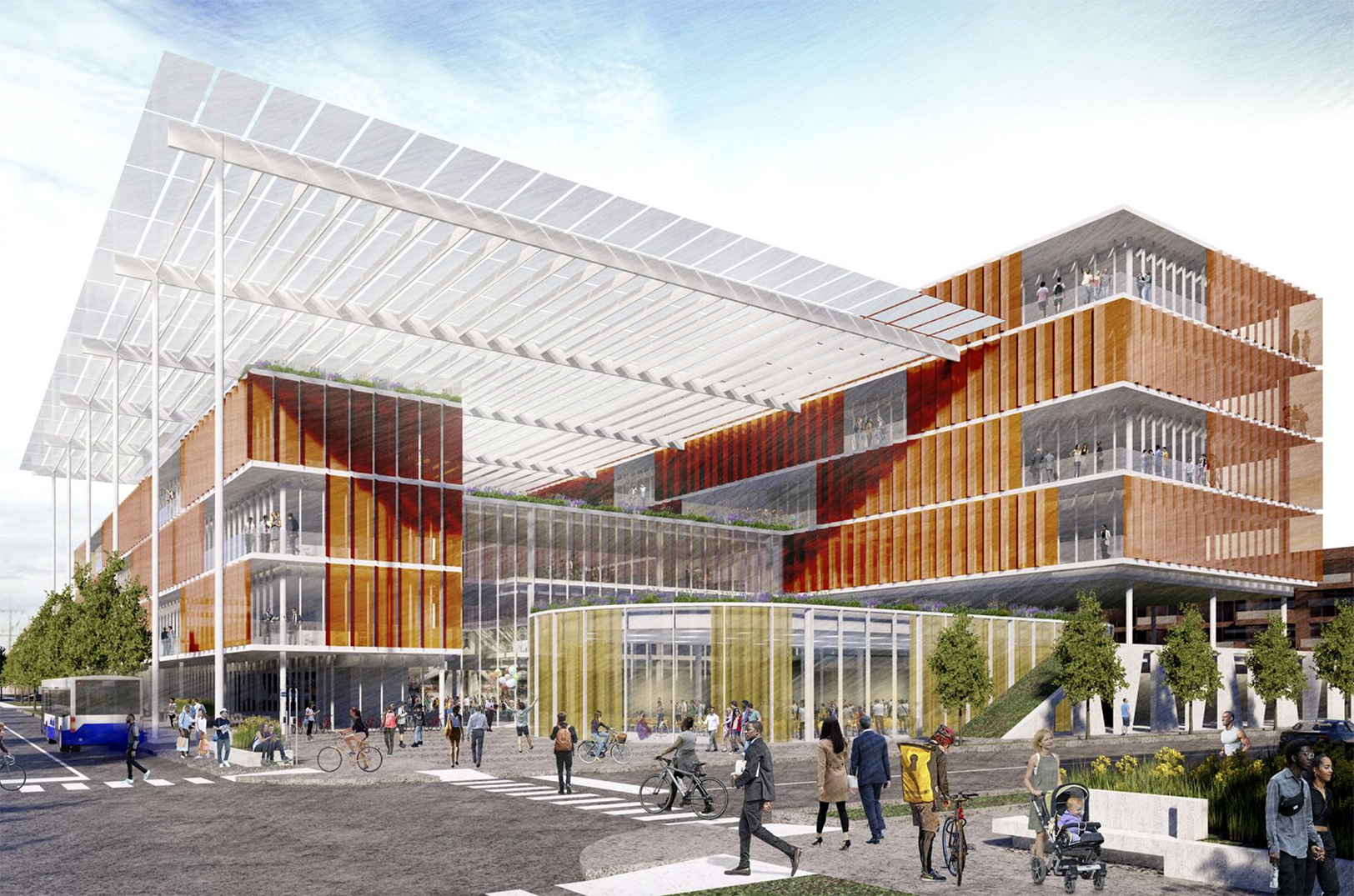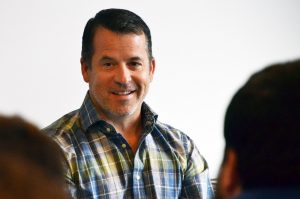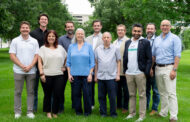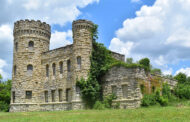Editor’s note: The following story was originally published by CityScene KC, an online news source focused on Greater Downtown Kansas City. Click here to read the original story or here to sign up for the weekly CityScene KC email review.
An ambitious proposal for a Keystone Innovation District campus on East 18th Street has experienced a major setback with a planned new office building and renovated warehouse no longer in the works.
Keystone Community Corp., a strategic economic development initiative backed by the Civic Council of Greater Kansas City, had been working with J.E. Dunn Capital Partners to build a five-story office, classroom and business incubator project at 18th and Troost.
Keystone also had been partnering with Sunflower Development Group on a plan to renovate the former Goodwill warehouse and office at 18th and Campbell.
But the Kansas City Area Transportation Authority, the owner of the vacant block at 18th and Troost, is no longer offering the site for a Keystone facility, and the contract to purchase the former Goodwill property has expired.
Kevin McGinnis, chairman of the Keystone Community Corp. could not be reached by CityScene KC for comment.
Brien Starner, president of RideKC Development Corp., said his agency ended discussions with J.E. Dunn Capital Partners because the proposal didn’t include a comprehensive redevelopment plan for the entire 18-acre KCATA complex.
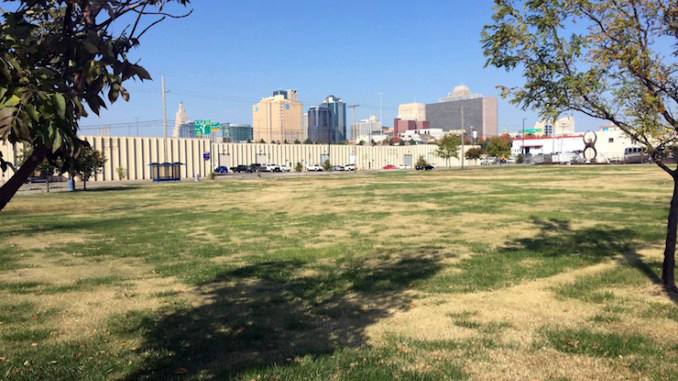
The KCATA property that was discussed for a proposed location of the Keystone Innovation District building is a one block site north of 18th Street between Forest and Troost. (Photo courtesy of CityScene KC)
“What we ended up with was a project with lots of good elements, but what we didn’t have was a use for the Breen building, Starner said, referring to the ATA administrative offices. “We’re not interested in just a real estate transaction.
“We want a 16- to 18-acre development at our location. Keystone could fit, but COVID and financing it became problematic. We decided to stop and we may revise our request for proposals.”
Michael Collins, managing director of J.E. Dunn Capital, acknowledged his firm couldn’t reach a deal, adding it only had intended to develop the block at 18th and Troost, not redevelop the entire ATA campus which includes offices, repair shops and a bus barn.
Collins did say his firm had lined up prospective tenants for the 18th and Troost project, and now is considering alternative plans to accommodate them.
“We’re resetting and moving toward the future,” Collins said. “We have some tech tenants, innovation tenants, that we intend to focus on.”
When asked if that meant another office project might be in the works, Collins replied, “stay tuned.”
He also declined to comment whether Keystone would be involved in whatever future real estate initiative could be in store.
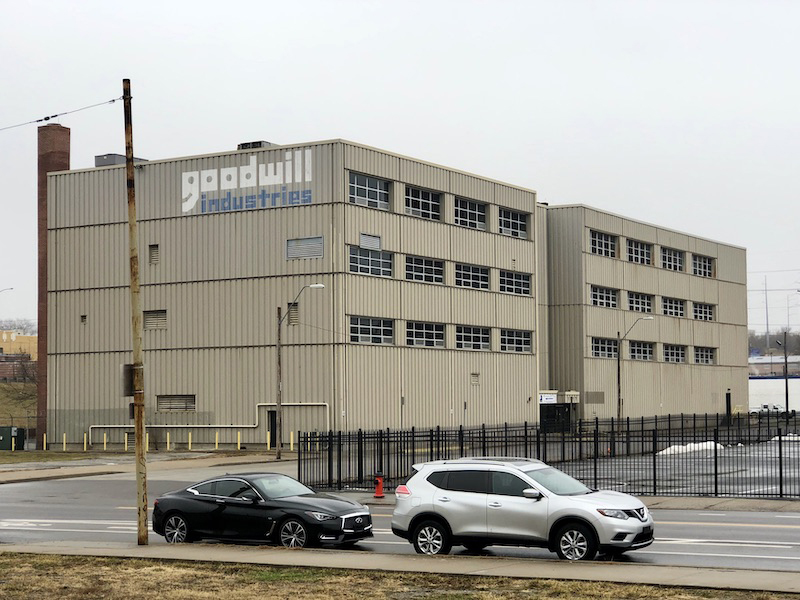
Keystone also wanted to partner in the renovation of the former Goodwill facility at 18th and Campbell, but a contract to buy the building has expired. (Photo courtesy of CityScene KC)
Last summer, McGinnis said the Keystone initiative was preparing to make its first strategic real estate moves, citing the proposed project at 18th and Troost and a large renovation project on East 18th Street.
J.E. Dunn Capital then submitted a preliminary inquiry with the City Planning Department for a $20 million office project at 18th and Troost. It estimated 140 employees could work there.
The Keystone Innovation District has long targeted the East Crossroads and 18th & Vine District as the location for its programs and facilities. The concept also could further the city’s goal of making East 18th Street a vibrant link between downtown and 18th & Vine.
The idea for the Keystone Innovation District began several years ago when key civic organizations led by the Civic Council, became increasingly concerned about the region’s sluggish economic growth.
Click here to read about Keystone’s ongoing programming through Keystone Labs, most recently with the just-announced LaunchKC Social Venture Studio.
KC Rising, an initiative of the Civic Council, found that while Kansas City metro’s economy was growing, it was at half the rate of 30 communities identified as its peer group.
A key finding was the area needed to improve its innovation and entrepreneurial sectors.
A former Sprint executive, McGinnis was asked by the Civic Council to lead the Keystone Community Corp. in 2018, leaving the Sprint Accelerator, a co-working and startup space, launched in 2013. (The Sprint Accelerator now operates as the T-Mobile Accelerator.)
McGinnis has previously said examples most similar to what Kansas City is seeking to achieve are the 16 Tech innovation district in Indianapolis and the Cortex Innovation Community in St. Louis.
Click here to read Startland News’ past reporting on the Keystone innovation district.



